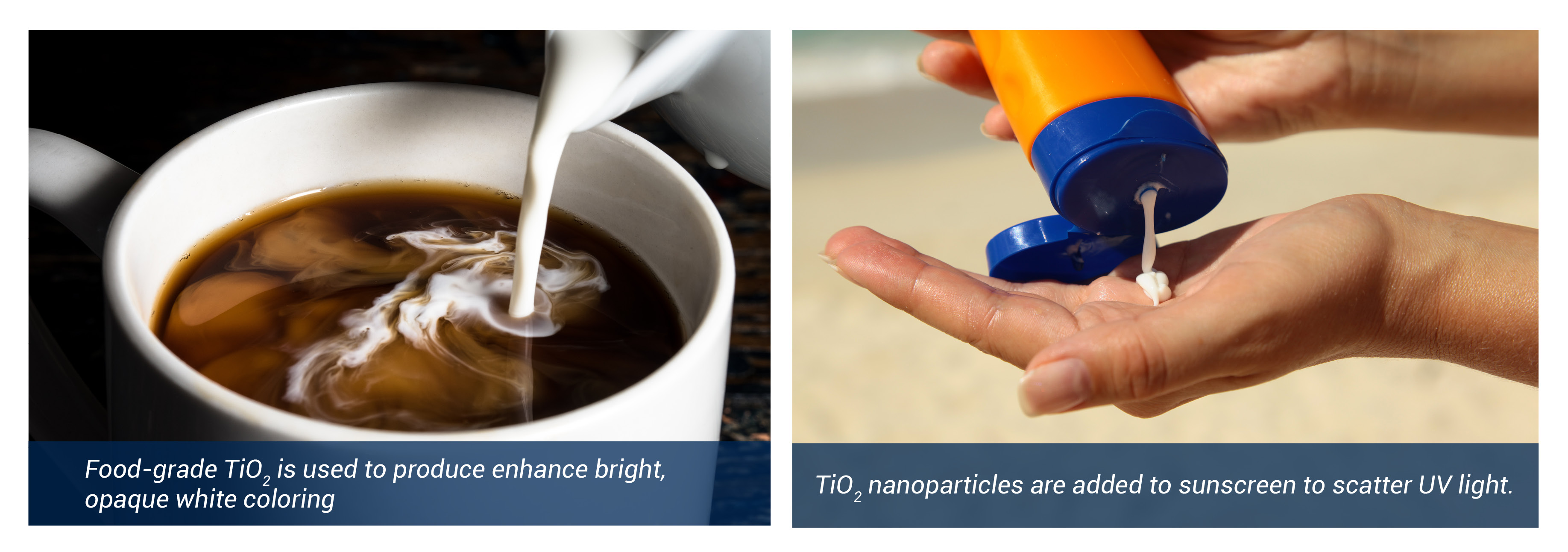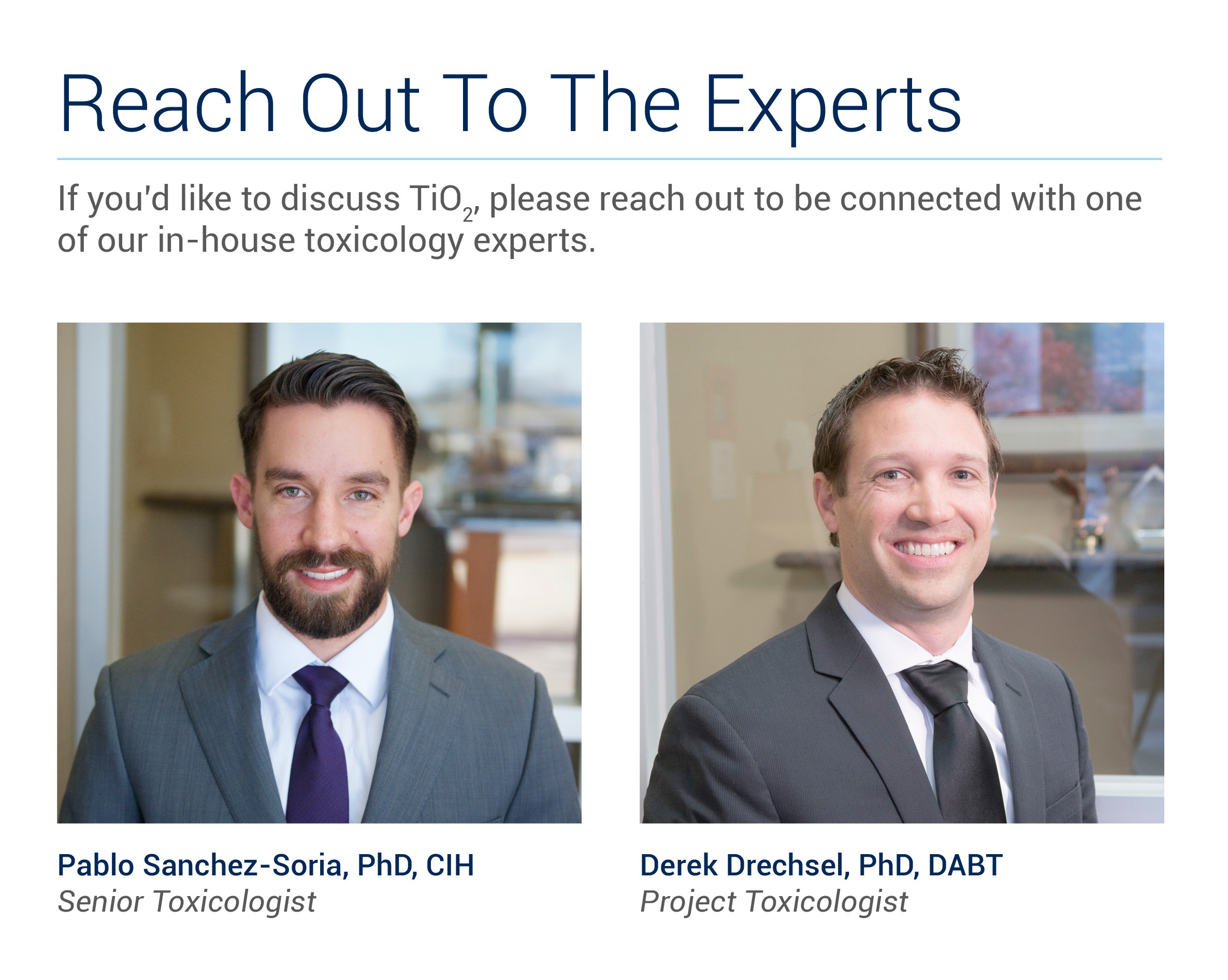European Safety Agency Titanium Dioxide Review Opens Doors to Litigation
Titanium dioxide (TiO2) is a naturally occurring mineral particle that is found in a multitude of household products. TiO2 is commonly used as a color additive in food, beverages, personal care products, sunscreens, pharmaceuticals, and other household products such as paper, ceramics, and paints (Pubchem; Weir et al. 2012). Historically, there has been a global consensus that TiO2 is considered safe for use in food, beverages, personal care products and other products where exposure may occur through ingestion or application to the skin. Regulatory agencies in the United States continue to allow TiO2 in foods, beverages, and consumer products; however, a recent re-evaluation conducted by the European Food Safety Authority (EFSA) concluded that, in light of uncertainties in recent toxicological data, TiO2 “can no longer be considered as safe when used as a food additive” (EFSA, 2021a).

EFSA’s report noted the potential for TiO2 to induce adverse health effects via long-term accumulation of TiO2 particles in tissue, immunological and neurotoxic effects, and induction of DNA damage (genotoxicity) (EFSA, 2021b). However, EFSA also reported that animal studies showed no adverse effects at high levels of TiO2 exposure, and that results were inconsistent across studies which did not allow for a definitive conclusion regarding toxicity. In foods and beverages, TiO2 exists as a particle with a variety of size ranges, including a small fraction characterized as nanoparticles (particles with a diameter of 100 nanometers or less). Particle size and a host of other physical and chemical characteristics can influence the toxicity of a particle. According to EFSA’s report, there remain scientific questions regarding how such features may contribute to health effects associated with TiO2, if any. Specifically, the potential impact of TiO2 nanoparticles is an area of future research. Notably, EFSA’s conclusion is primarily based on a failure to dismiss potential adverse health effects rather than the existence of any reliable evidence of a toxicological effect in animals or humans. Rather, EFSA noted that a “genotoxicity concern could not be ruled out” and that some toxicological effects may occur, without reaching definitive conclusions.
The conclusions drawn by EFSA represent a significant change from previous evaluations of TiO2. Though EFSA has not deemed the use of TiO2 as a food additive as “unsafe,” the impact of their conclusions has been substantial and swift. Subsequent regulatory actions have led to the ban of TiO2 as a food additive in the European Union, effective August 2022. Regarding the decision to ban TiO2 in foods in the EU, the United States Department of Agriculture (USDA) stated that the recent decision was based on a “perceived gap in data on this risk, which serves as the basis for the [European] Commission’s current proposed action” (USDA, 2022). The USDA further indicated that “the 2021 [EFSA] opinion reflects a hazard assessment of titanium dioxide nanomaterials but does not reflect human exposure to titanium dioxide and is not relevant as such to demonstrate its use as a food additive.”
At the same time, several lawsuits in the United States have alleged that products containing TiO2 pose a risk to consumers for a variety of health effects. Currently, lawsuits have targeted TiO2-containing products including candy, tampons, and over-the-counter pain-relief medication. Given the widespread use of TiO2, many other foods and household products may be subject to potential regulatory action and litigation claims.
For over 25 years, CTEH, LLC has been providing expert testimony, litigation support, and strategic consulting services. With experience assisting in cases at both the state and federal level, our CTEH team can provide a significant edge when preparing for legal proceedings. We have assisted in cases of all kinds and can help your team make sense of complex scientific data and other information. Contact us today! Click the image below to e-mail Dr. Sanchez-Soria and Dr. Drechsel directly.

